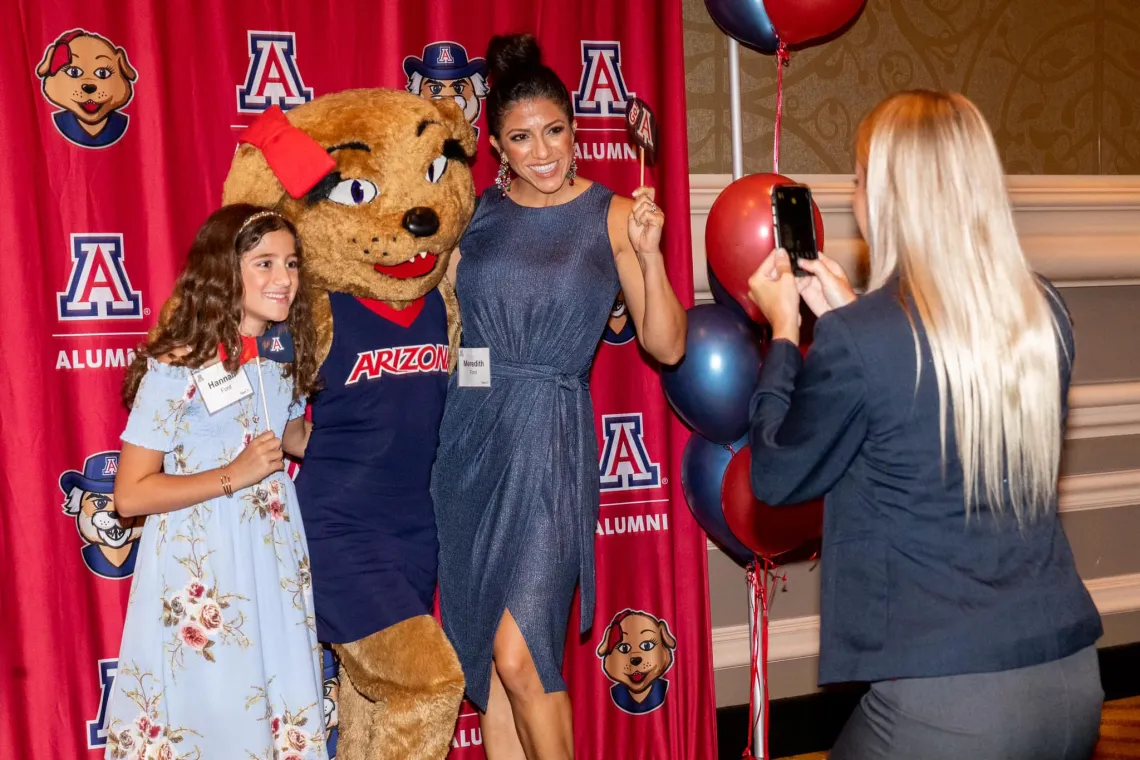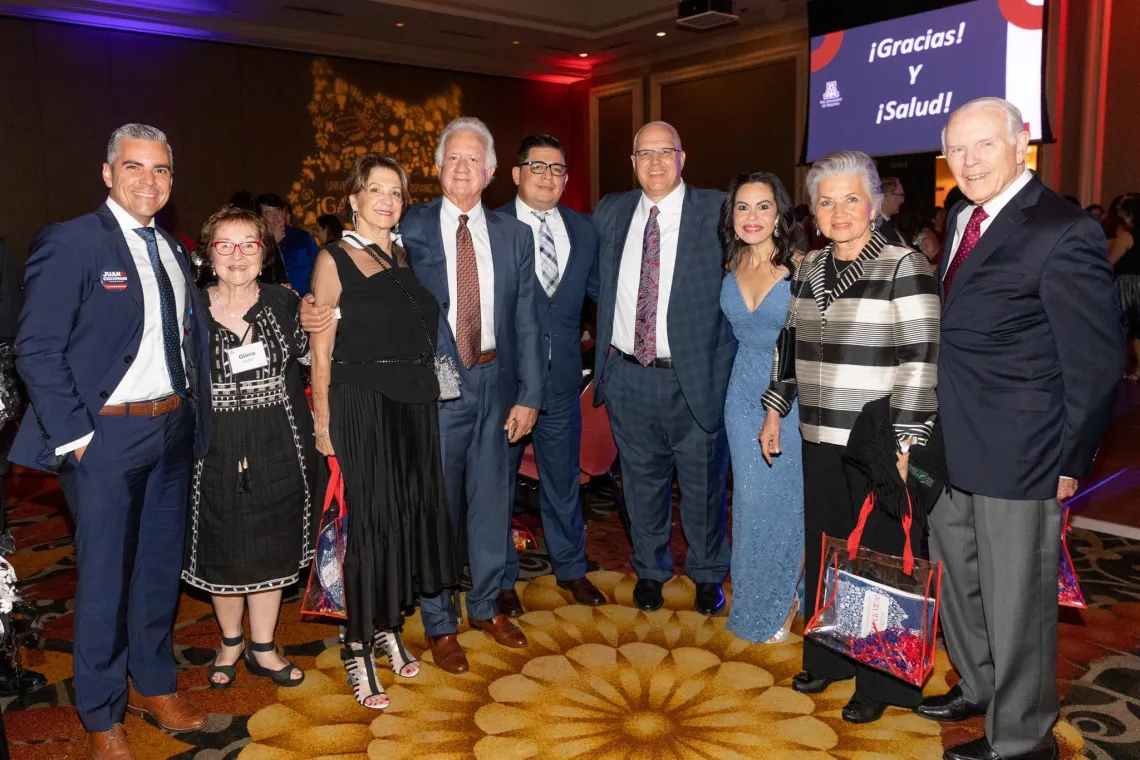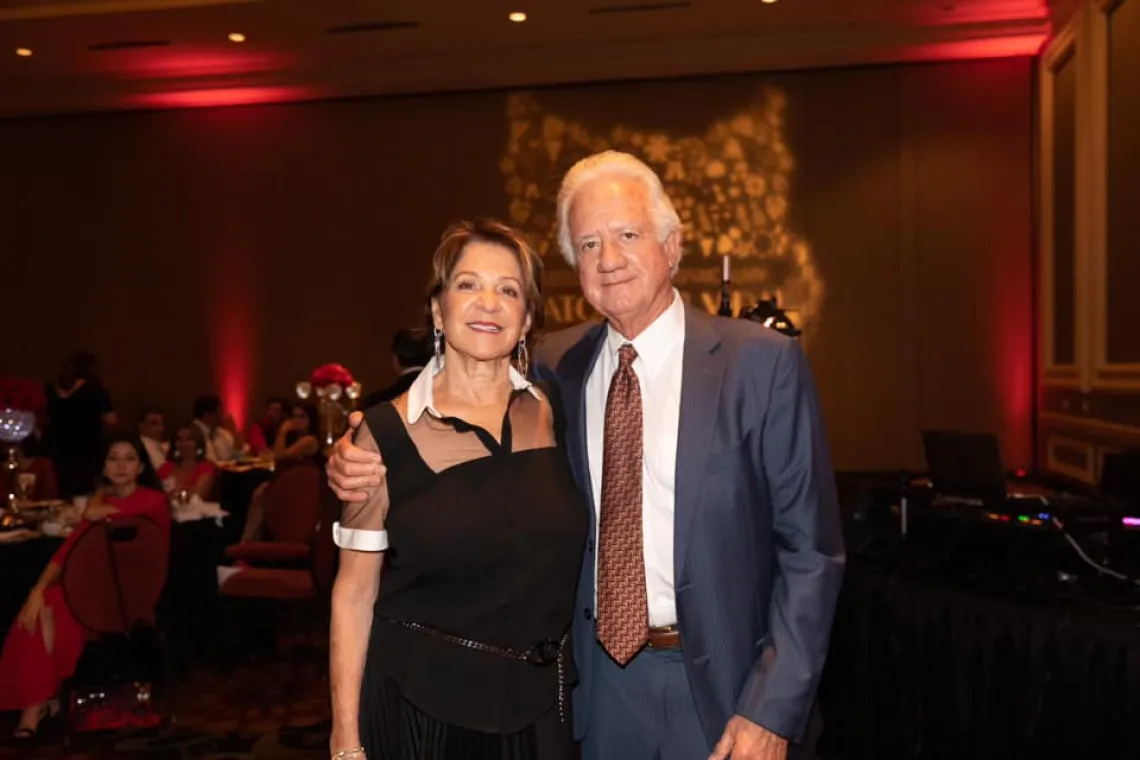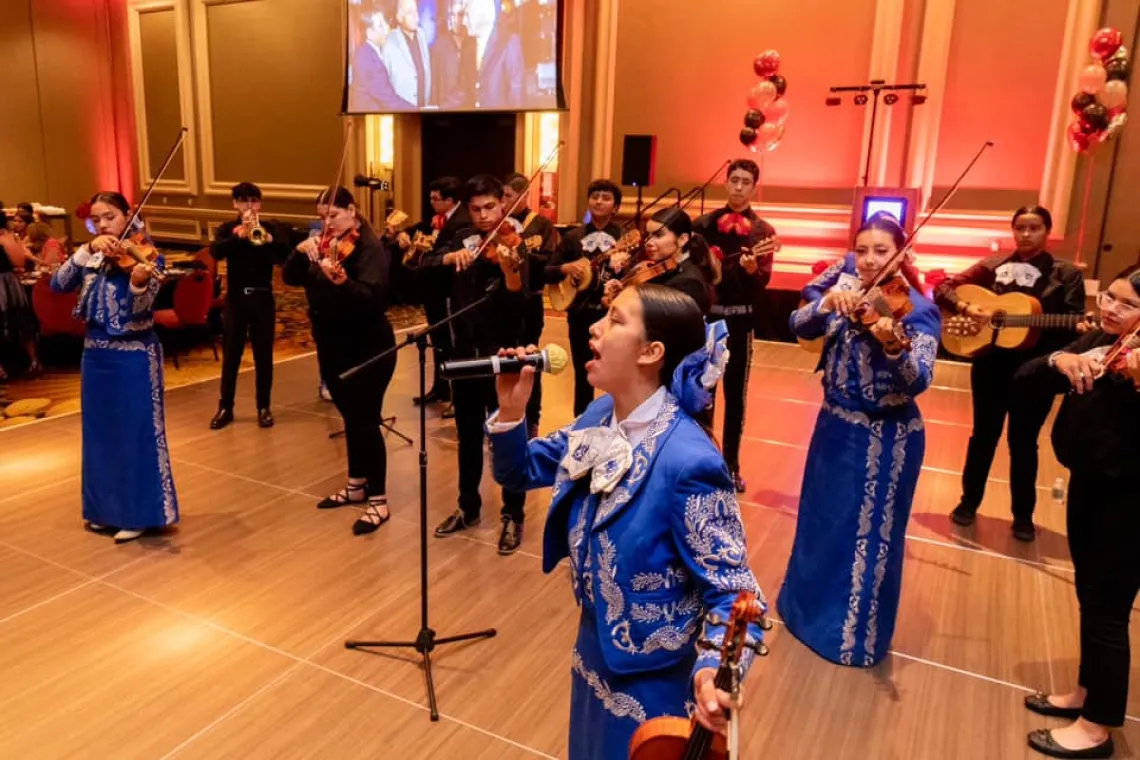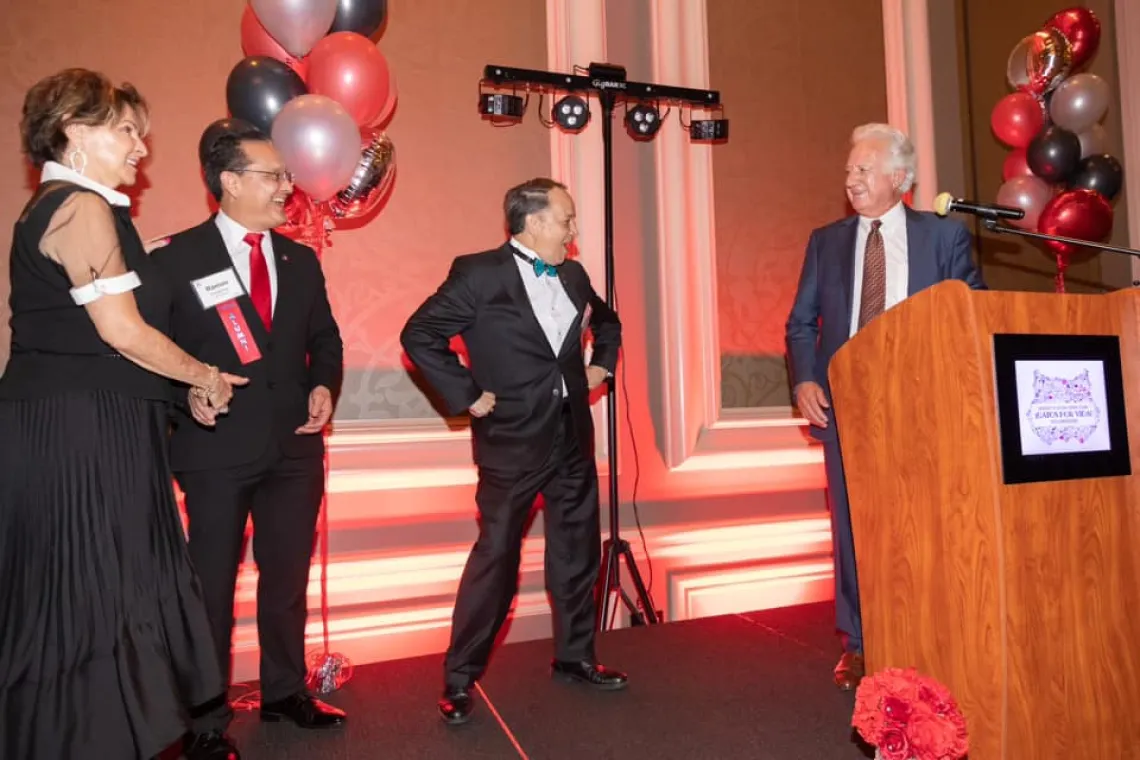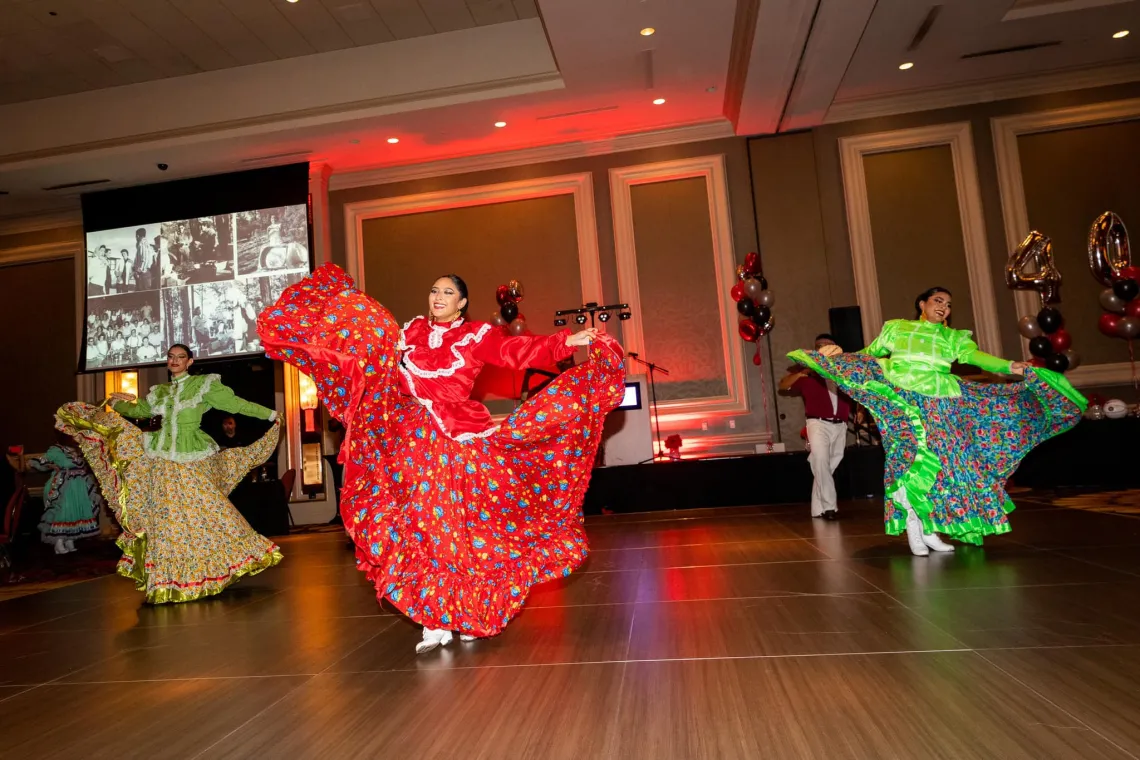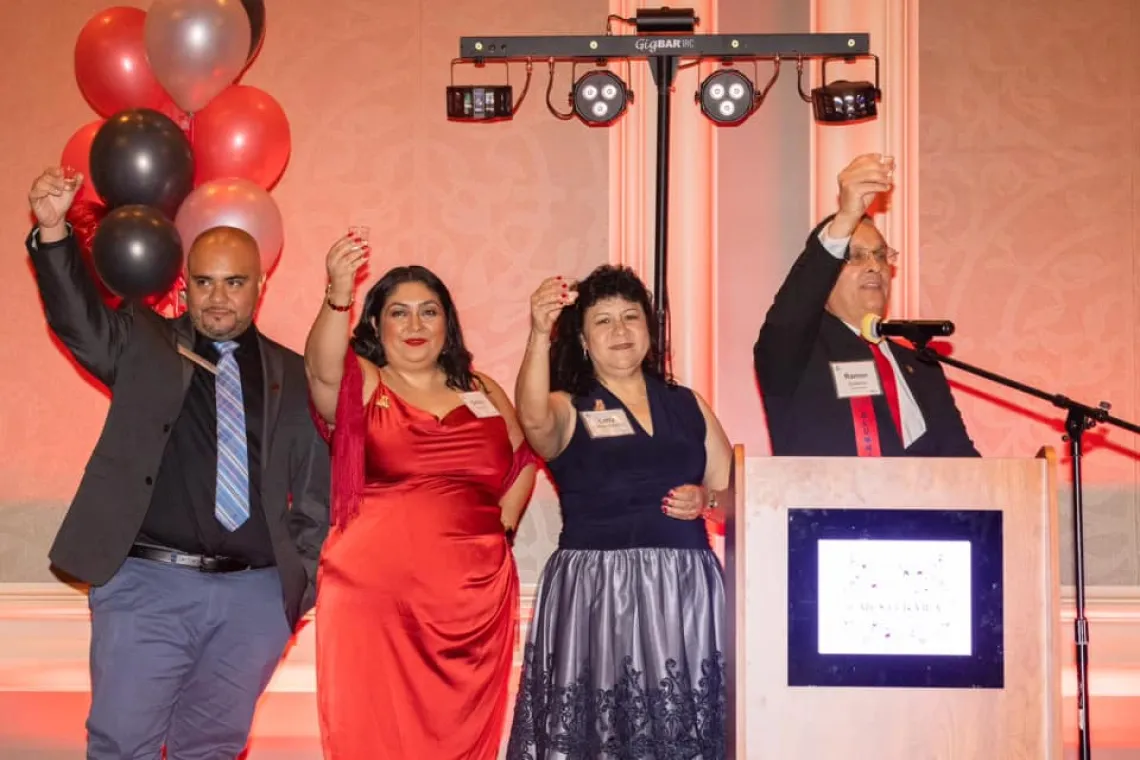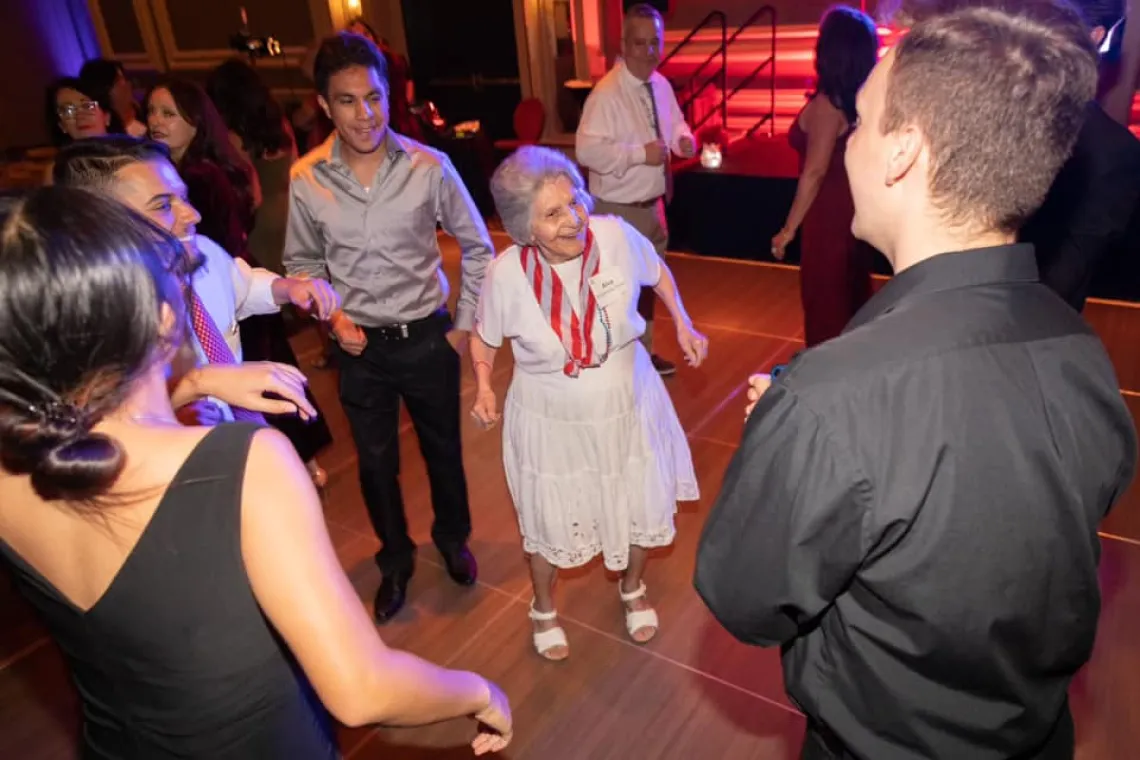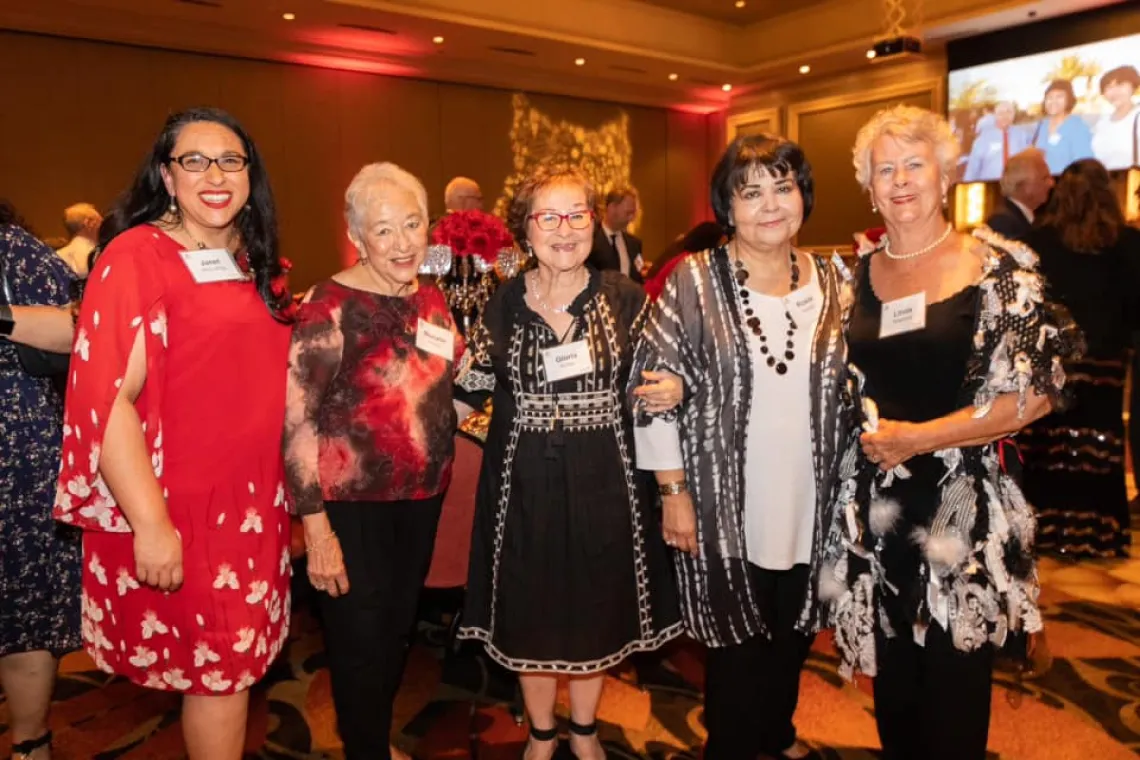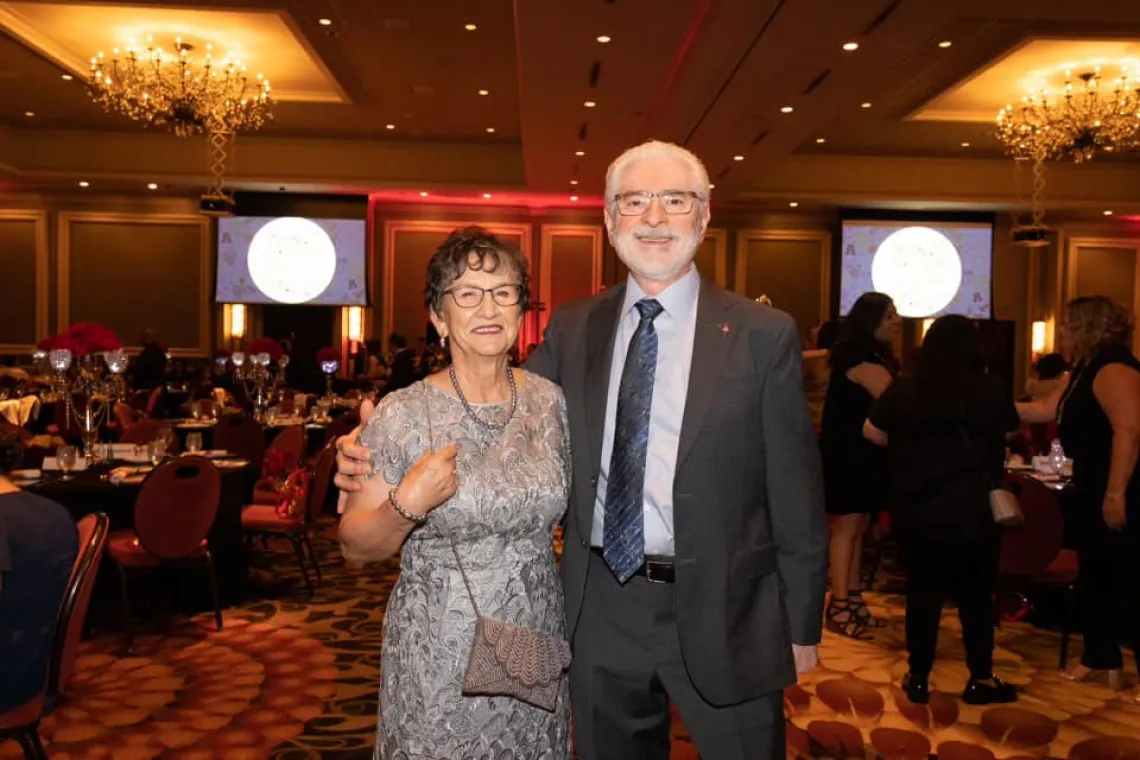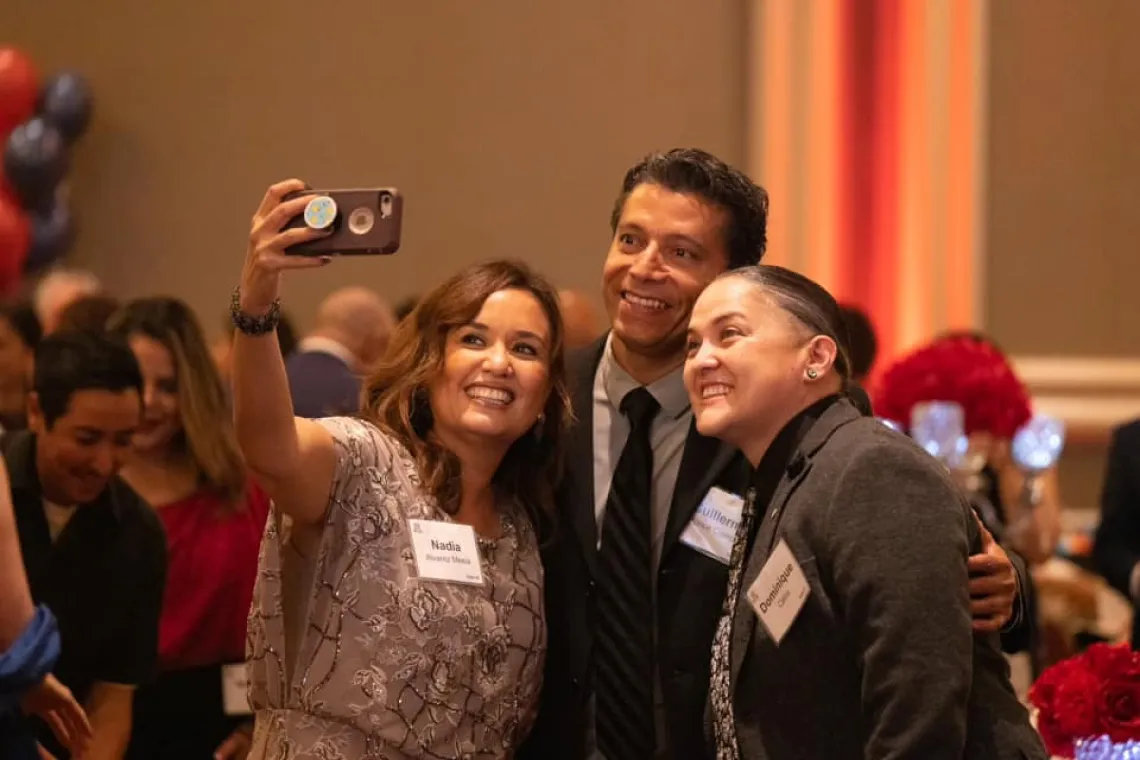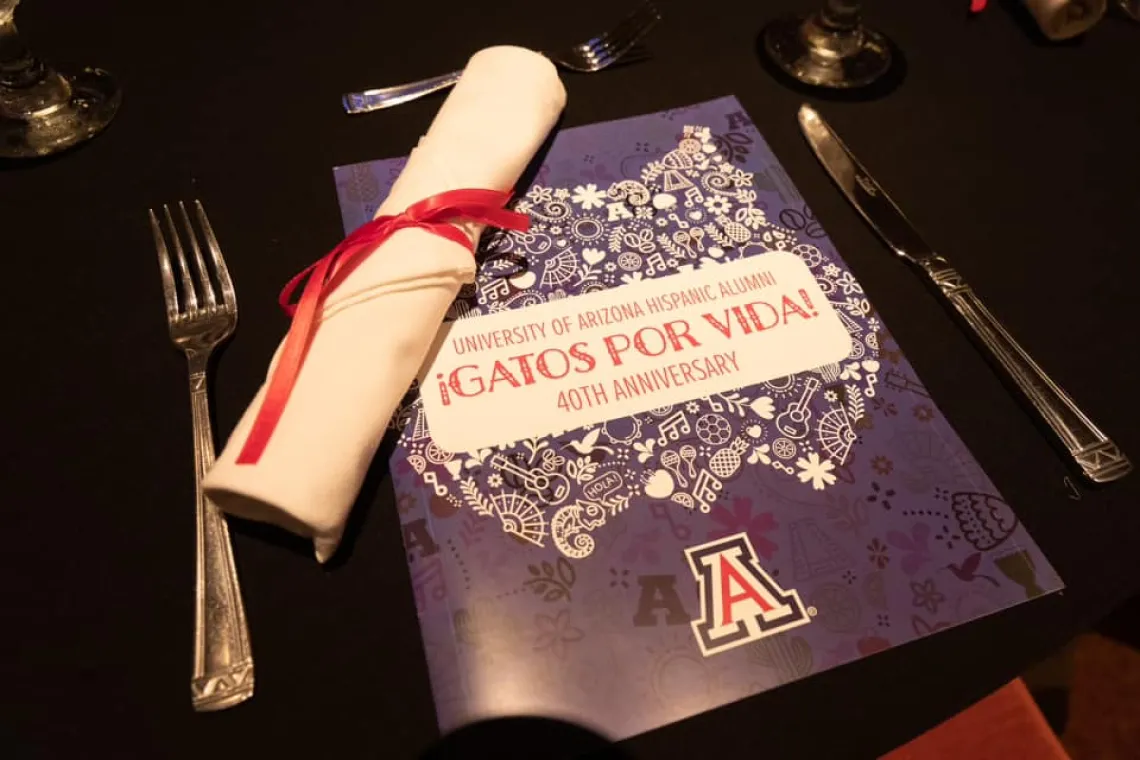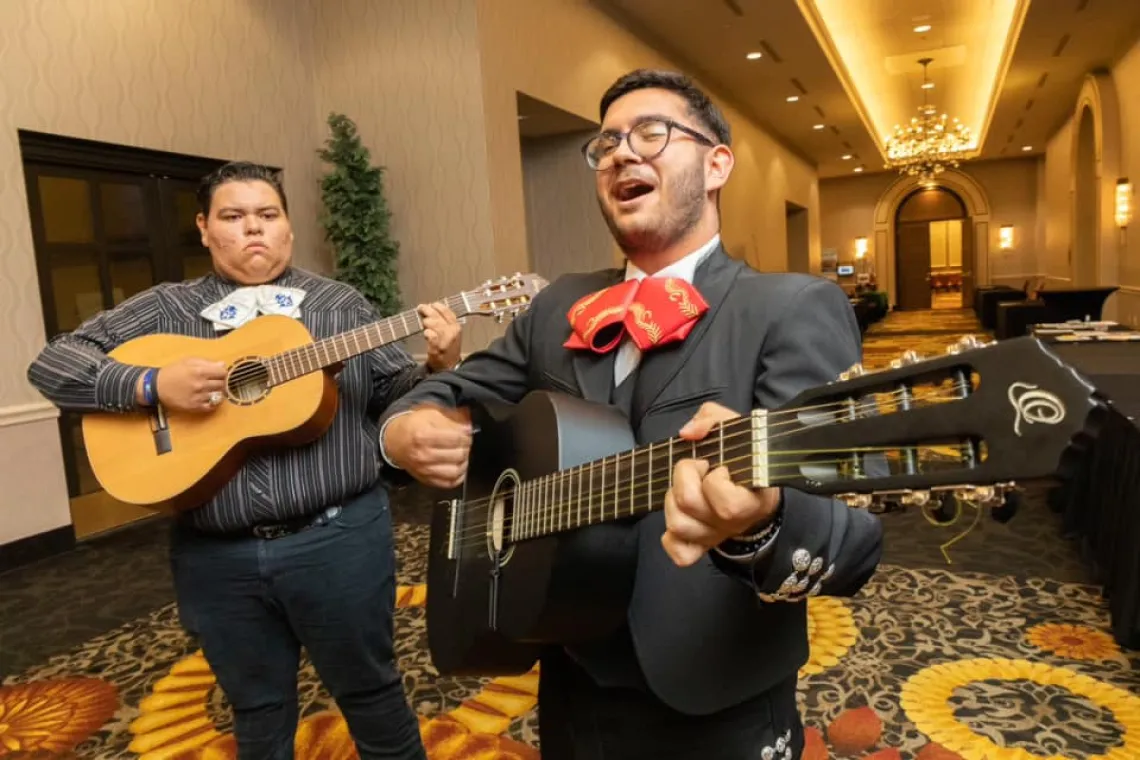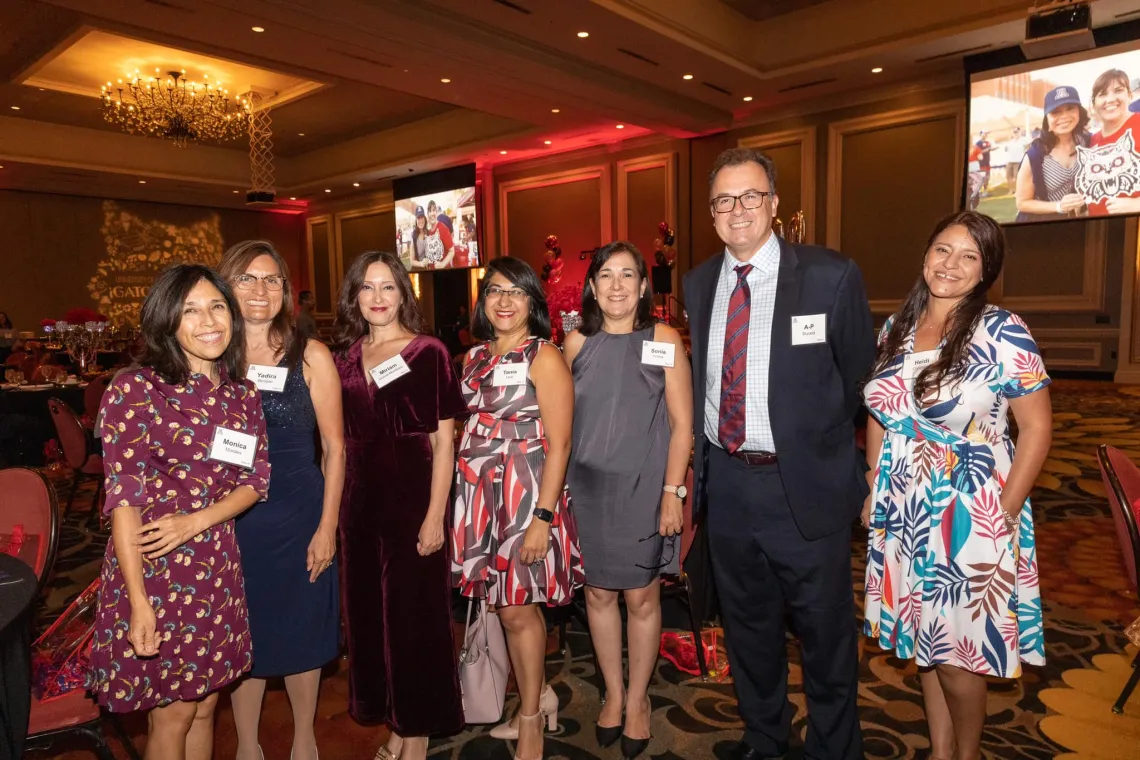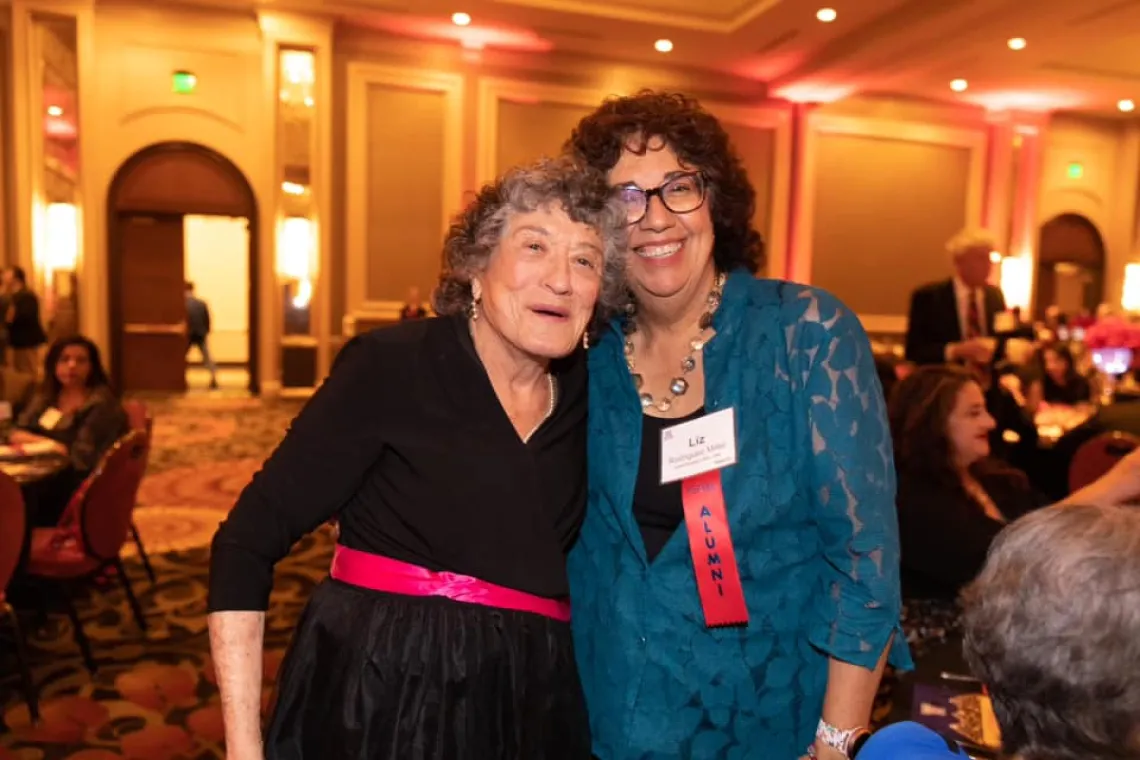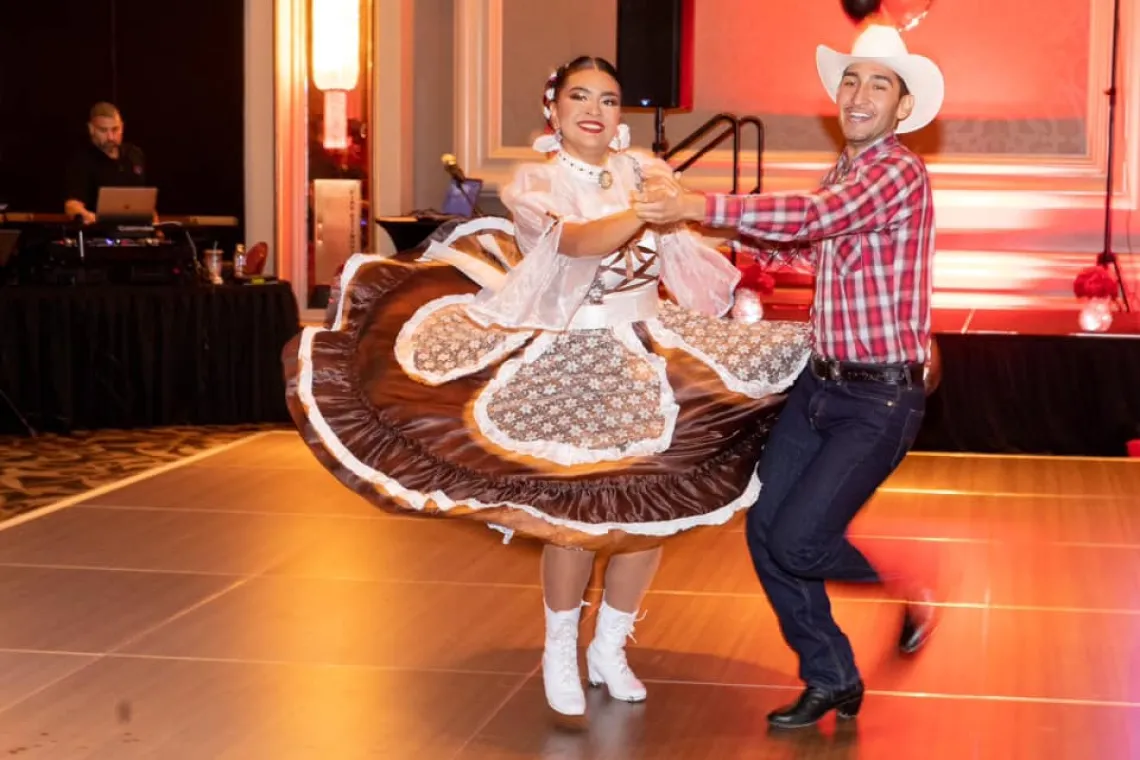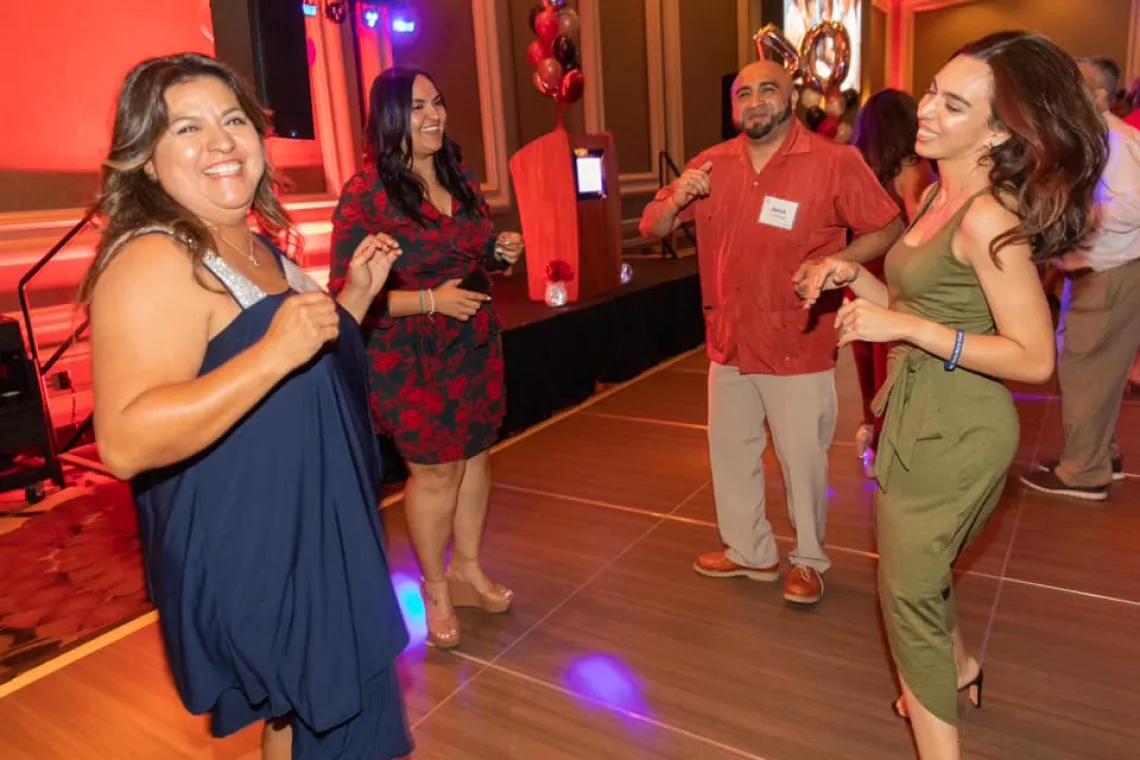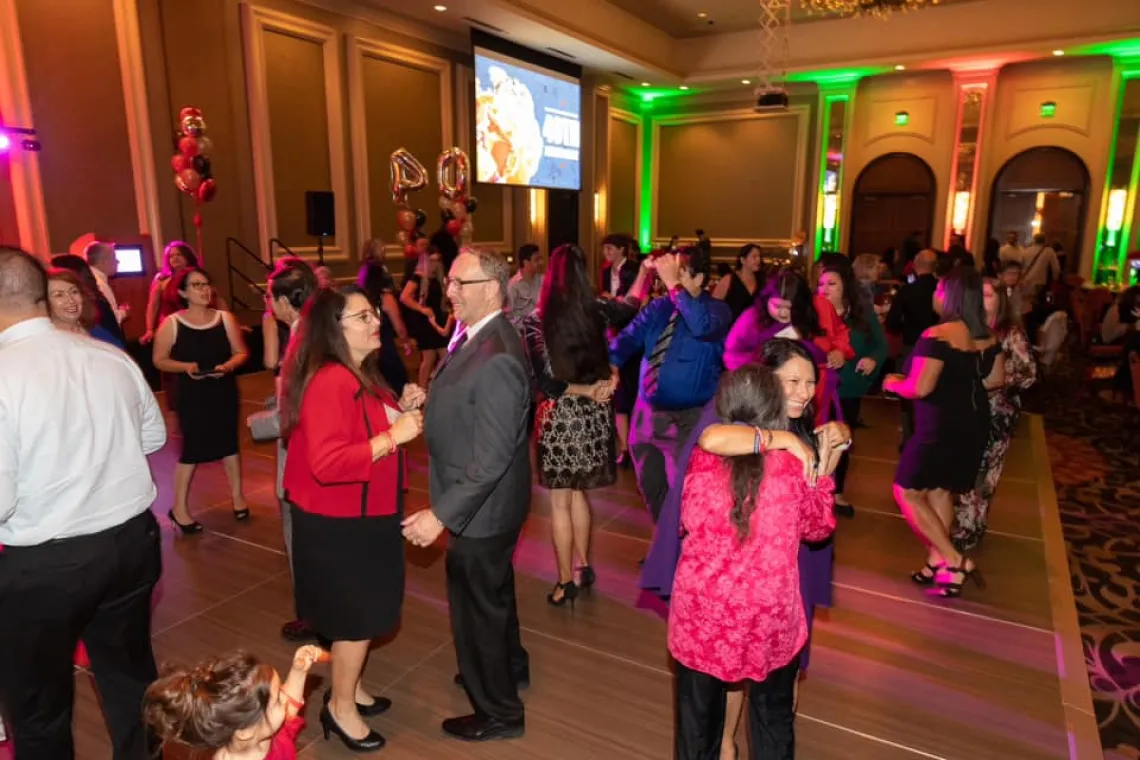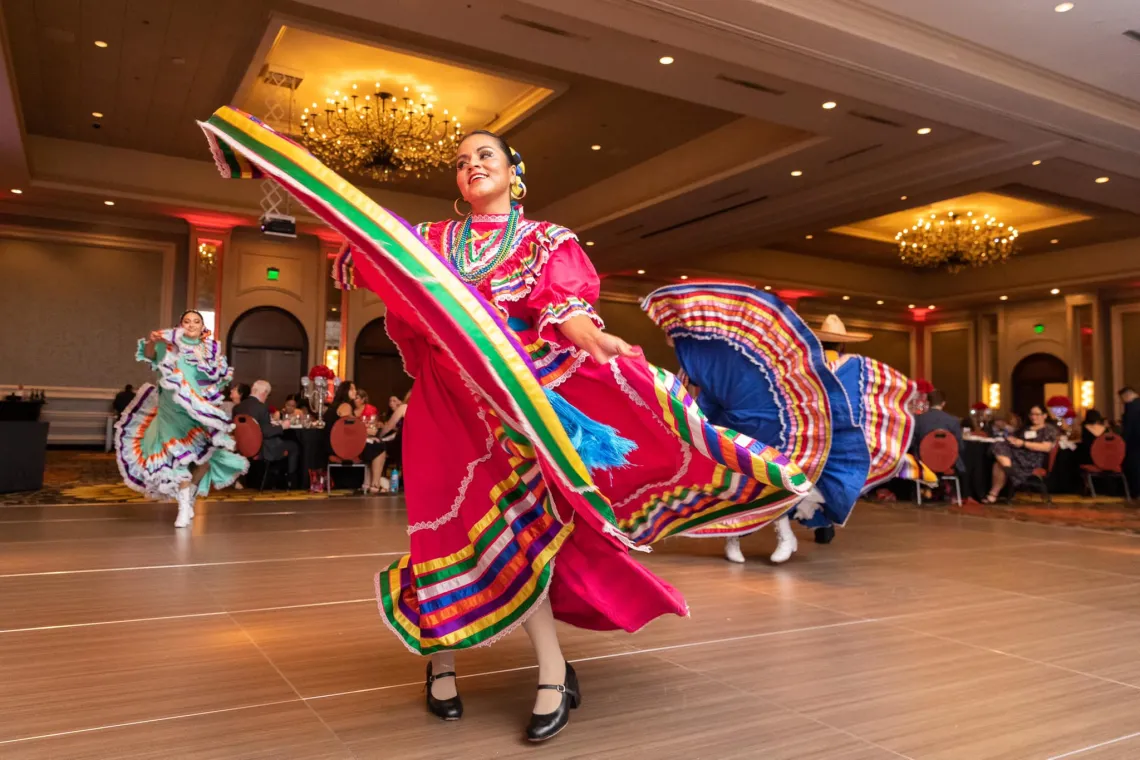From That Humble Beginning
Hispanic Alumni Club celebrates 40 years of laying tracks.
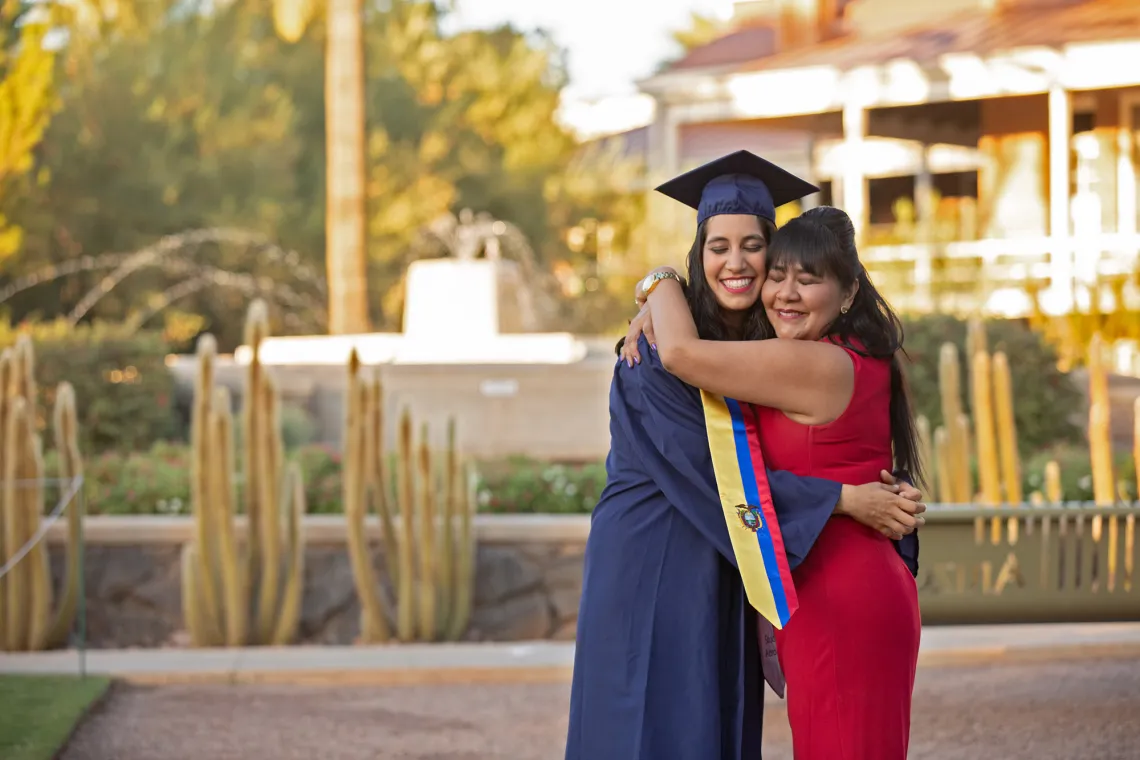
UAHA scholarship recipient Melisa Bohlman ’19 and her mom, Elisa Bohlman.
/ Chris Richards photo
For Ricky Hernández, Thanksgiving Day arrived twice in 2012. First, of course, came the feast day, falling as is custom on the fourth Thursday of November. But two days later, Hernández found himself awash in gratitude again.
He’d been out of school for a decade by then. The son of parents who’d “believed strongly in the power of education” but had not themselves attended college, he’d ventured to Tucson from Nogales, Arizona, a border town of 20,000. At the University of Arizona, he’d earned degrees in political science and Spanish literature. In the years since, he’d remained in Tucson, working for schools in the city and, later, Pima County, topping out as chief financial officer in the superintendent’s office.
Hernández also had joined the board of the University of Arizona Hispanic Alumni Club, the storied campus group whose scholarship program had eased his financial burden during school, as it has done for thousands of others.
So it was that, for Hernández, Thanksgiving Day dawned a second time, at a celebration for the multicultural club’s 30th anniversary.
Hernández, as incoming president, held a distinct honor at the event: He’d escort Henry Koffler, the evening’s keynote speaker and former UArizona president, to the microphone. Koffler’s early support of the group, he knew, had revved the club’s now thunderous engine.
Koffler had been, Hernández says, “the golden spike” — a railroading term for the final link from here to there. Yet before Koffler spoke to the crowd at a resort cradled by the Tucson Mountains, he turned to Hernández. In that brief moment, Koffler thanked him for his service to the club, fixing the evening in memory.
To be thanked by Koffler, Hernández says, is among his fondest club memories, because it drove home that what he’d done, like what Koffler had done, mattered. They were part of an interwoven story of time and place, of service and community.
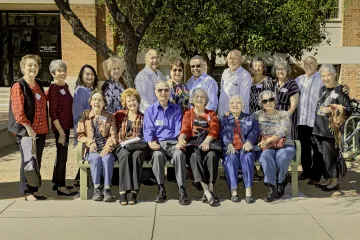
Los Universitarios reunites to dedicate an alumni bench in honor of UAHA beginnings.
/ Chris Richards photo
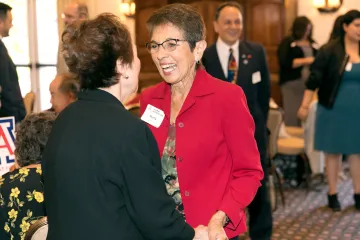
Marty Cortez, right, greets a Los Universitarios guest at a reunion event.
/ Chris Richards photo
Converse with folks like Hernández — folks graced by the club, folks who’ve graced the club in return — and you become keenly aware of UAHA’s history, the tracks laid gradually and resolutely down.
When Marty Cortez came to UArizona in 1954 to study elementary education — from Casa Grande, then a pinprick city along the interstate from Tucson to Phoenix — there was no campus club promoting genuine and lasting connection within the Latinx community. And forget the Greek houses, who Cortez says did not seek out minorities.
“There were no programs that we knew of,” Cortez says, “to encourage or assist the many young Latinos of Arizona to come and thrive at the U of A.”
A year later, Cortez’s classmate, John Huerta, organized Los Universitarios, a university-sanctioned student club that became UAHA’s precursor. Some on campus questioned why the club was necessary. But Cortez says that many members would say of Los Universitarios: “That kept me at school.”
After Koffler became University president in 1982, Cortez and other Los Universitarios alumni founded UAHA. In 1986, as had Los Universitarios, the club offered its first scholarships: merit awards supporting seven Latinx, in-state students.
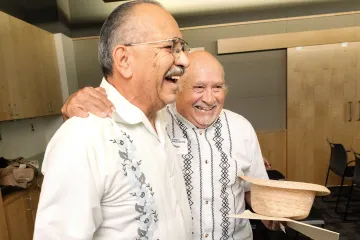
Los Universitarios alumni Rudy Bejarano, left, and Diego Navarette, right, reunite.
/ Chris Richards photo
“From that humble beginning,” Cortez says, “we proceeded on. And as we got donors and grew our funds, we were bringing students to the university from all over the state.”
A retention program followed in 1998. Through a partnership with both the Mexican American Studies Department and Socorro Carrizosa, then director of the Adalberto & Ana Guerrero Student Center, UAHA scholars would now hone skills such as public speaking and networking. Mostly, though, they’d spend time in each other’s orbits, with mentors talking often of heritage.
Today, having recently celebrated its 40th anniversary, UAHA supports more than 100 students per year, awarding $4,000 renewable scholarships and placing scholars, says Hernández, within a tightknit community. Each becomes part of the club’s tapestried tale, that long arc of which Hernández and Cortez speak with pride.
“From the fruits of Los Universitarios, all of our children went to college,” Cortez says. “It is that generational expansion of knowledge and effectiveness and community participation [that] set the foundation.”
Many scholars, as she and Hernández well know, go on to lead in their communities, bringing along a head-and-heart commitment to service.
Steven Harshman, a 2021 graduate set to begin coursework at the UArizona College of Medicine – Tucson this fall, is just one exemplar of the club’s sturdy power.
“I got to be a scribe in a hospital, and I had the time to make a nonprofit foundation that helps with education,” he says. “I wouldn’t have had the time or the headspace if it weren’t for that financial security that UAHA provides.”
The golden-tracked train thunders on, 40 years young.

